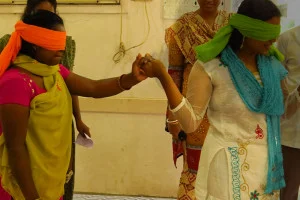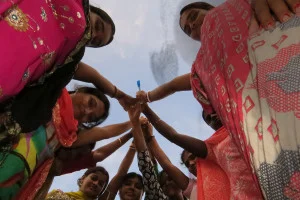From Tragedy to Triumph: The Rise of Survivor-Leaders in the Anti-Trafficking Movement
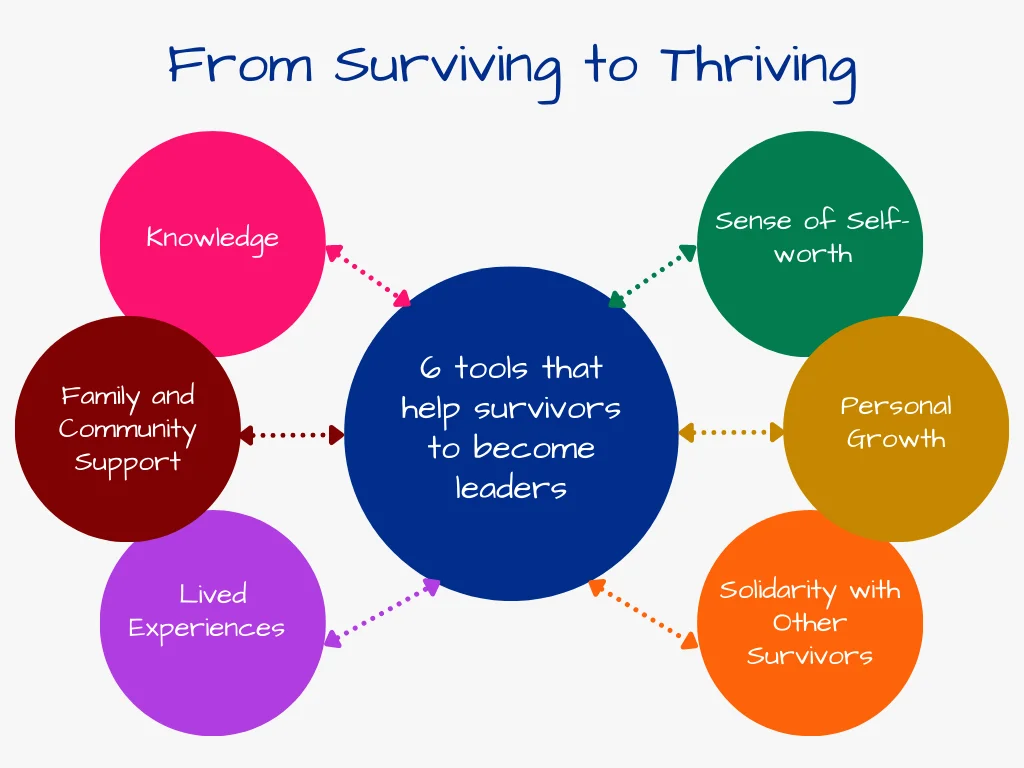

In today’s world, the stories of survivors of human trafficking often fall on deaf ears, regarded merely as anecdotes, rather than as urgent calls to action for a better world. Despite having a constitutional right against human exploitation, human trafficking continues to plague marginalized communities in India. It is high time to heed the voices of survivors and integrate them into comprehensive anti-trafficking strategies, empowering them to lead the movement towards a better future.
Recently, Sanjog, a leading organization dedicated to anti-trafficking efforts, conducted a study with two collectives – SAANS and Utthan – who have been successfully working towards ending human trafficking. During the study, youth leaders and survivors of trafficking and forced labor reflected on their journeys from victimhood to leadership, identifying the factors that enabled them to take charge and become leaders in their own right.
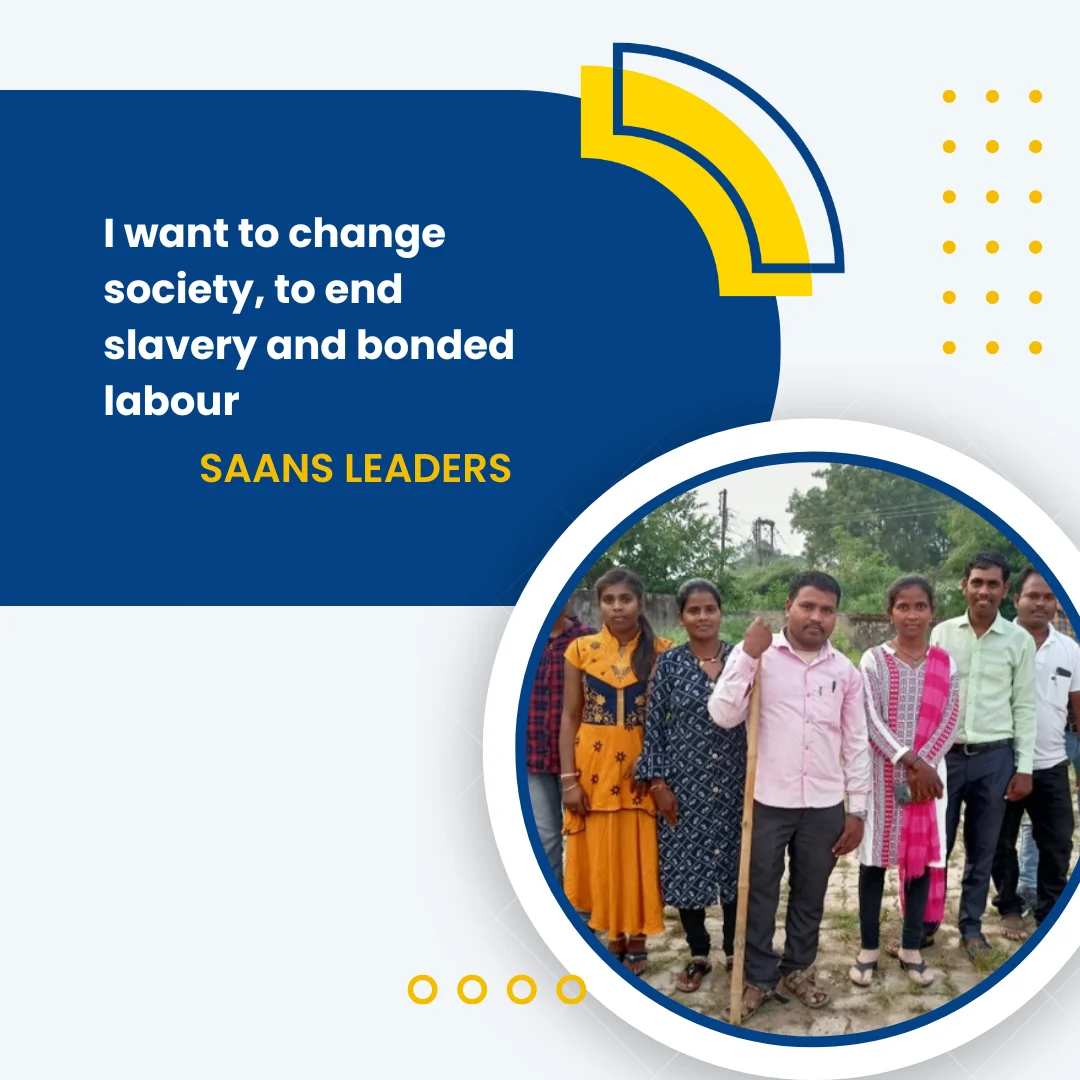

Knowledge as a Catalyst for Change
Sanjog’s study with two collectives, SAANS and Utthan, reveals that empowerment through knowledge and social support from family and community are crucial factors in enabling survivors to become leaders and take charge of the fight against trafficking. The young leaders and survivors, all between the ages 16 to 25, recognize the need for education and skill-building to bring about macro-level change in society. They understand the importance of knowing the law, policy-making, and all other relevant knowledge.
The survivor-turned-youth leaders from both the collectives, emphasized that being in control of small responsibilities such as submitting periodic reports of their work to major stakeholders reinforces their feelings of empowerment.
Family and Community Support for Fostering Strength
Survivors of human trafficking endure some of the most abhorrent and violent acts imaginable. For members of collectives like SAANS and Utthan, healing and support are paramount in their recovery process. They understand that having a strong social support system from their families and communities is a tremendous advantage that makes them feel empowered.rnrnHowever, if families or communities fail to provide adequate support, it can become a significant obstacle for survivors. Many members of these collectives have experienced firsthand the stigma of sexual violence, and survivors of trafficking who have endured such violence emphasize the importance of support from their loved ones and communities in helping them deal with the ensuing shame.
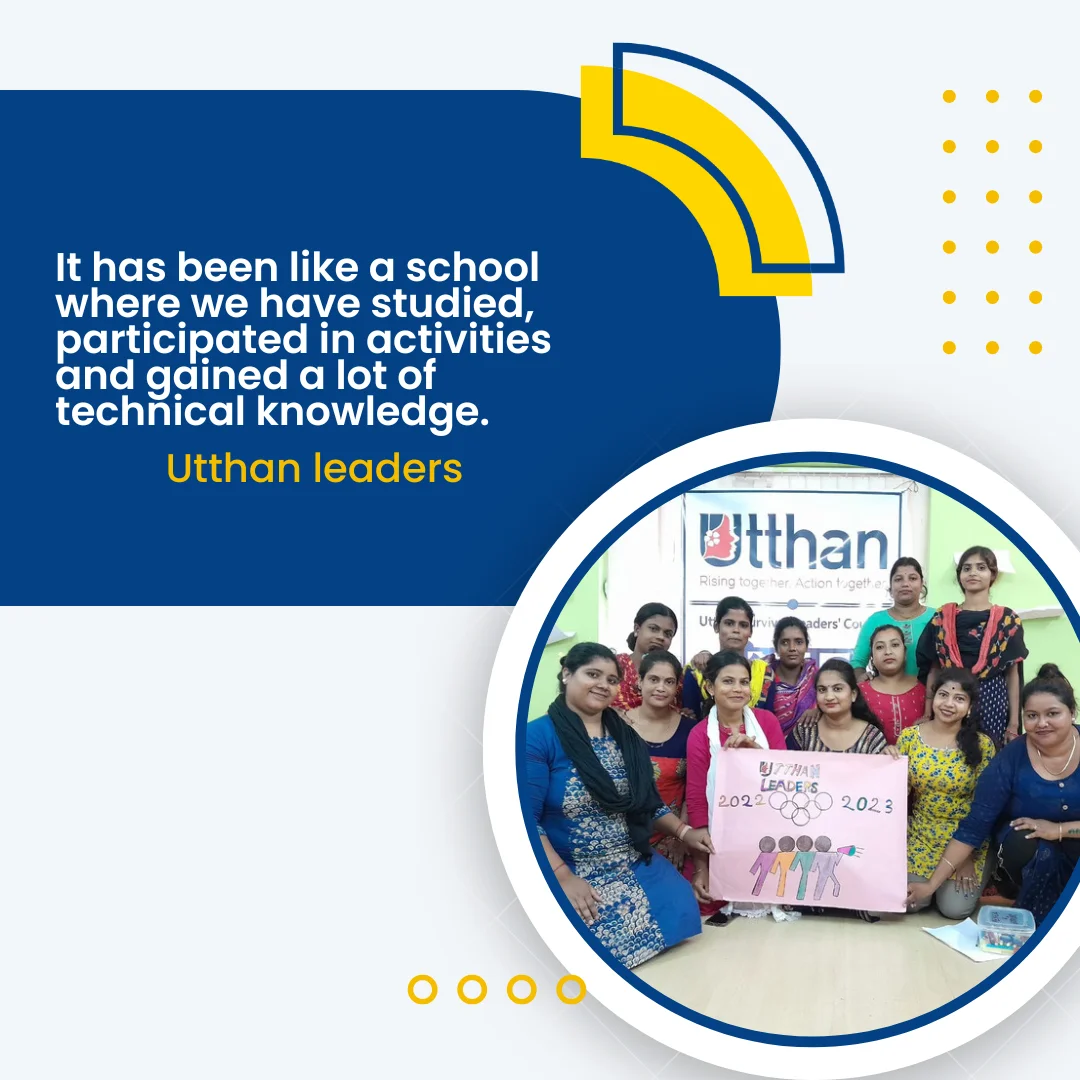

Lived Experiences of Breaking the Chains of Trauma
Lived experience of violence can be a powerful tool in building empathetic leaders. Survivors of violence have firsthand knowledge of the pain, trauma, and challenges that come with such experiences. This knowledge can help them develop a deeper sense of empathy for others who have been through similar situations.
During Sanjog’s study with the SAANS collective, many of its leaders shared stories of their personal struggles with injustice and how they overcame them. Some of these leaders spoke about instances where they stood up for themselves and for others who were being mistreated. Others recounted experiences where they empowered others to find their voice and stand up for their rights.
Many interviewee’s pointed out that their newfound confidence was strengthened by social validation in the form of respect, appreciation, and reliance from others.
Power of Self-Worth in Reclaiming Dignity
In the transformative journey of survivors of human trafficking, many leaders have marked significant moments as ‘milestone events’, serving as graduation ceremonies or initiation into leadership roles.
Numerous youth leaders from two collectives have shared their experiences of how acquiring leadership skills and becoming agents of change has bolstered their self-worth. By extension, their self-esteem has been nourished, propelling them to take on more significant responsibilities and spearhead change within their communities. The brutal reality of human trafficking can deeply wound a survivor’s self-worth, leaving them feeling fragile and vulnerable. However, milestone wins offer a chance to rebuild their self-esteem and reassert their importance in the change-making process.
Deep Self-Awareness of Social Positions
As both the survivor-collective gathered to reflect on their journeys towards leadership, a common thread emerged: a fierce commitment to fighting exploitation and promoting equality. Despite the obstacles they faced due to their social positions, these leaders were unrelenting in their pursuit of a better society.
But even amidst this fervor, these activists were keenly aware of their own shortcomings. They acknowledged a lack of financial resources, poor communication skills, and a dearth of relevant knowledge needed to make a significant impact. This level of self-awareness served as a crucial first step towards realizing their potential as leaders.
For these individuals, the path to leadership was not easy, but their unwavering dedication to their cause made the journey worth it.
Transformative Power of Personal Growth
Youth leaders from both the collectives stood out not only because of their remarkable perseverance in the face of adversity, but also because of their ability to transform their hardships into a catalyst for change. For many of them, their journey to survivor-leadership began with a single life-changing event that propelled them towards a path of advocacy and activism.
Through their participation in training and mentoring programs, these leaders gained the self-confidence necessary to advocate for their own rights and champion causes they believed in.
By prioritizing personal growth and reflecting on their own journeys, they have emerged as powerful voices in the fight for social justice. Their stories are a testament to the transformative power of survivor-leadership.
The Healing Power of Community with Other Survivor
For many survivors who have experienced unimaginable trauma, finding a sense of belonging and connection with others can be a powerful tool in their healing journey. This sentiment was echoed by leaders from the Utthan organization, who found solace and strength in connecting with other survivors.
Through this shared experience, survivors were able to understand their struggles from a survivor perspective rather than solely as victims. This sense of camaraderie and mutual understanding allowed them to gain confidence in their own experiences and develop the empathy needed to support others who have gone through similar challenges.rnrnIn many ways, these leaders have transformed their negative experiences into a fountainhead of leadership. Surviving trauma has become a differentiating factor that has fueled their drive to end the suffering of others. By using their pain to inspire positive change, they have emerged as beacons of hope and resilience in their communities.
Through their connection with other survivors and their commitment to supporting those who have faced similar struggles, they have found a sense of purpose and meaning. Their stories serve as a reminder of the incredible resilience of the human spirit and the power of connection in overcoming adversity.
Sanjog’s experience with SAANS and Utthan Leaders
Survivor leaders from both collectives have found strength in unique places. The commitment they show in making the best of each opportunity is commendable. The interaction between the SAANS and Utthan leaders with Sanjog proved to be a catalyst in their leadership journeys. The young survivor leaders utilized the resources and mentorship provided by Sanjog to amplify their voices and navigate the aftermath of their trauma.
They also expressed their gratitude for Sanjog’s initiative to provide access to medical services that catered to their mental and physical health needs.
Both SAANS and Utthan leaders mentioned the importance of ethical practices observed by Sanjog in building trust. Practices such as respecting survivors’ privacy and seeking informed consent before sharing their traumatic experiences with other stakeholders, have nurtured the trust between the two parties.
Survivors bring a unique perspective and deep understanding of the issues at hand. Without survivor leadership, efforts to combat violence are incomplete. It is only through empowering survivors with the agency to lead that true transformation can be achieved. SAANS and Utthan show us how true transformation is only possible when survivors are at the forefront.
Team Sanjog
|
Thursday
,
May 18, 2023

